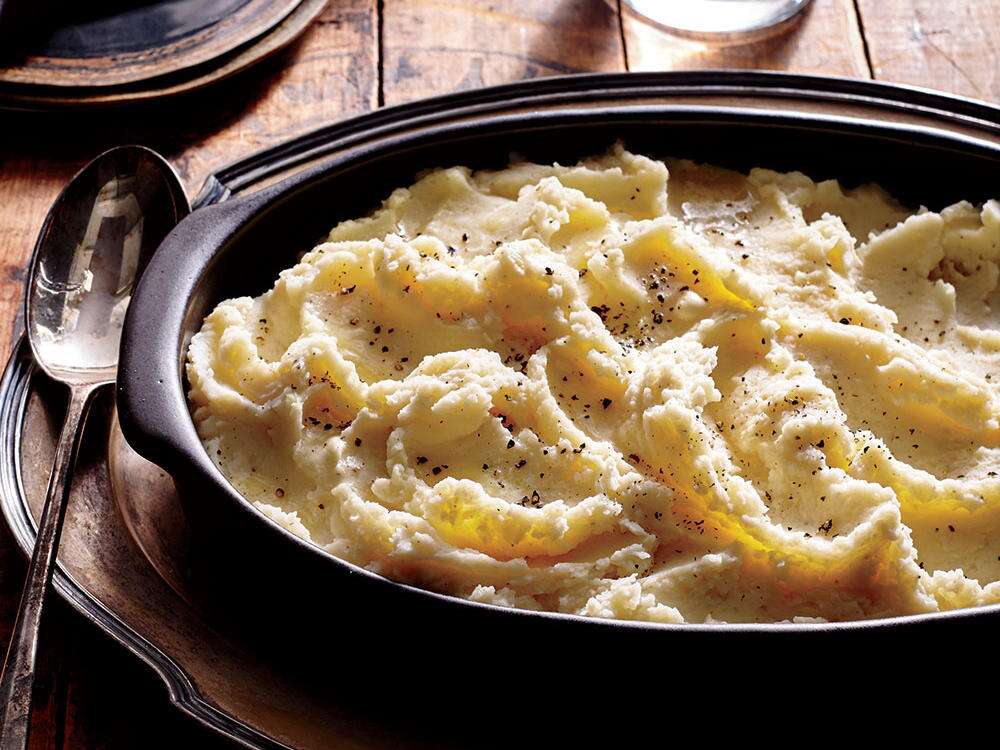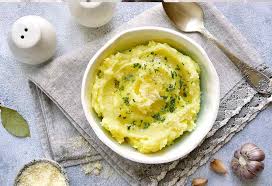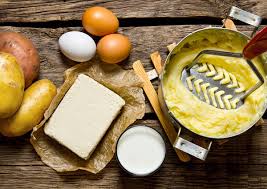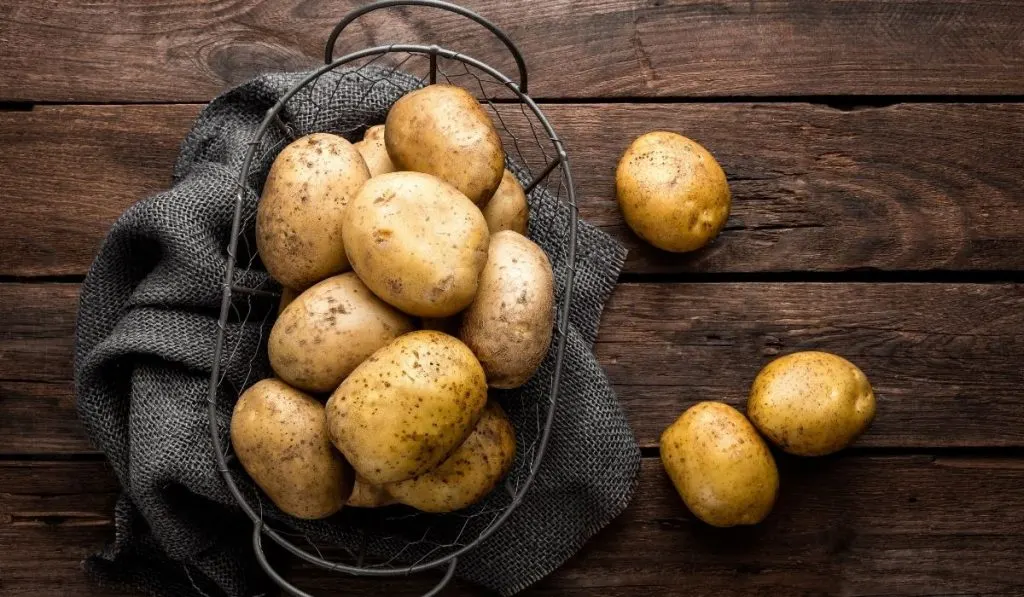Can Mashed Potatoes Be Left Out For A Long Time?

Mashed potatoes are a holiday cuisine staple, and you may eat them for Thanksgiving, special events, or simply regular carb meals. We can’t seem to get enough of this creamy, silky starch bliss.
However, the question is, “How long may mashed potatoes be left out?” According to idahopotato.com, hot meals should only be exposed to room temperature for 2 hours and should be at 135 degrees F or above to avoid germs.
It’s fine to leave out the mashed potatoes if it’s mashed potatoes, and the dairy ingredients you added to your mashed potatoes are the source of worry here. Let’s talk about why you shouldn’t keep your mashed potatoes out in the open for an extended period.
How Does Mashed Potatoes Go Bad?

The microbes Bacillus Cereus is a kind of bacterium that is colorless, odorless, and tasteless. This microorganism thrives on starchy meals like mashed potatoes, which might result in severe diarrhea and vomiting.
I’m sure you’ve heard from your mother previously not to mix mashed potatoes with meats to prevent them deteriorating. Bacteria are more likely to grow in starchy meals at temperatures ranging from 40 to 140 degrees Fahrenheit, and these temperatures attract dangerous germs, which can increase swiftly without your knowledge.
What happens if you leave mashed potatoes out for longer than 2 hours?
The warmth from the meal and moisture from the milk in mashed potatoes can develop a single microbe that divides every half hour. If you do the arithmetic, it has the potential to transmit other germs, culminating in a total of 10 million new bacterias in just 10 hours.
These dangerous germs may spread on your dining table and even in your hands if exposed for an extended period.
Staphylococcus Aureus is a bacteria that lives harmlessly on our skin and within our nose and throat, according to the US Department of Agriculture’s Food Safety and Inspection Service. These are the germs that may spread if you mishandle food.
This bacterium produces dangerous toxins that significantly damage your gut, causing stomach pains and unpleasant diarrhea. It might start hours or days after consuming tainted or damaged food.
Why can Dairy Products Easily Spoil Mashed Potatoes?

The majority of dairy products have a high-fat content and a shallow water level. Bacteria may flourish and reproduce because these properties promote bacterial development.
This is why unsealed packs and cartons of milk or butter must be kept in the refrigerator. The cool temperature aids in the preservation of its freshness. Failure to do so exposes the milk to bacteria that convert lactose to glucose and galactose, resulting in lactic acid production.
Lactic acid generates casein, which creates a curd and curdles the milk for 24 hours. This is deemed rotten and must be discarded.
Listeria monocytogenes, a bacterium prevalent in soft, unpasteurized cheeses, can persist even at freezing temperatures and grow continually. Some people may be resistant to this bacterium, but pregnant women and the elderly are particularly vulnerable. It has the potential to induce miscarriages in pregnant women and severe poisoning in the elderly.
So, think twice before reheating your “hot mashed potatoes.” Food poisoning is no laughing matter; it may make you quite ill. Worse, it might result in life-threatening consequences, such as death.
That’s not what we want.
How To Make Mashed Potatoes Last Longer?
When hosting a gathering or a celebratory feast, keep track of how long your mashed potatoes have been exposed on the table. This is true for any food, and make sure they are not left out for more than 2 hours.
Refrigerate any cooked potatoes, such as mashed potatoes, after 2 hours of cooking to extend their shelf life and prevent the spread of any germs. It should be kept in a clean, airtight container or resealable plastic bag.
Mashed potatoes may be preserved in the fridge for up to 3 to 5 days if properly stored. You may also freeze it since mashed potatoes, unlike boiling potatoes, freeze nicely. You may safely store them in the freezer for up to 10-12 months.
Once thawed, frozen mashed potatoes can be stored in the refrigerator for 3-4 days. However, once frozen mashed potatoes are made, they should be consumed right away. Any leftovers must be discarded.
When reheating, cook it to at least 165 degrees F to destroy all hazardous germs. Stir it thoroughly to ensure that it is evenly heated.
How Can You Tell If Your Mashed Potatoes Have Gone Bad?

Smelling is the greatest technique to test. Take a whiff of your leftover mashed potatoes. If it has a foul odor or looks, throw it out right away.
Spoiled mashed potatoes stand out. It will become liquid and separate from the solid portions, and it will most likely have a strong sour odor and a white liquid haze on the surface.
Never do the taste test. It’s not worth the risk; your health is in danger, and food poisoning might be on the way.
Still, it’s worth noting that certain germs don’t smell like the ones we listed earlier. When in doubt, toss it.
My Own Experience and Extra Food Safety Tips!
- Food safety is non-negotiable for me as a qualified gourmet and home cook. Food preparation is a difficult process. As a result, it’s critical to use safe and hygienic techniques while handling and preparing food.
- Always buy the most recent fruits and meats. Be a picky buyer and avoid blemished items. Bacteria may be found in inadequate vegetables or meats, which can be transmitted to your food. Fresh food keeps better and has a longer shelf life.
- Improper food management is one of the reasons why foods degrade faster. I always wash every ingredient I use after purchasing it and before storing it. As an added precaution, I rewash them before cooking.
- Maintain a clean refrigerator. Even if you securely preserved your leftovers, such as mashed potatoes, but your fridge is filthy, it is still worthless. If you don’t clean your fridge, dirt and other impurities will spread. I have a timetable for cleaning the fridge and checking the shelf life of the items placed within.
- Keep your kitchen counter clean. Food pollutants may be present in your kitchen, mainly if it is unclean. Never leave a messy kitchen unattended, and always “clean as you go.”
- Cook food correctly. I constantly keep track of the temperature and the amount of time it takes to cook. It’s one method to tell if the dish was prepared correctly. This also applies to reheating leftovers.
- Use a serving spoon while serving meals. Never allow your family or friends to get their meal with a spoon and fork. This is one of the causes of food contamination or spoilage. Furthermore, it is pretty unsanitary. Adhere to excellent eating habits.
- Containers for leftover food should be sterilized. Leftover food must be stored in a specific manner. Before storing your food, thoroughly clean and dry your containers. Choose a container with a good seal that prevents air from contaminating your food. I usually purchase the lock & lock Tupperware brand since it works well. I don’t fill my food storage containers all the way. I usually allow at least 2 inches between the steam and the meal. That way, the food won’t deteriorate as quickly.
Food safety should never be taken lightly, and it should always be a serious concern.











